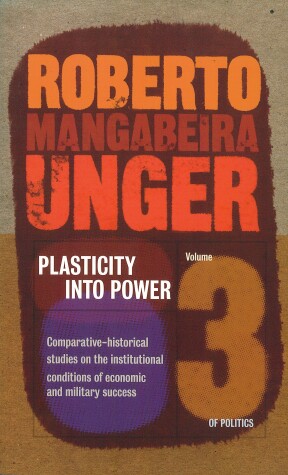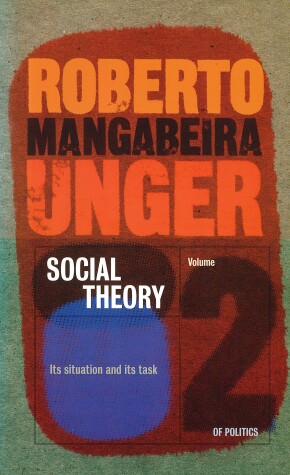Politics
3 total works
Social Theory: Its Situation and Its Task is an introduction both to Unger’s ideas and to the major debates of contemporary social, political and economic thought. Unger shows how the failures of social science and the criticism of such ambitious, deterministic theories as Marxism offer materials for an alternative practice of social understanding. This alternative severs, once and for all, the link between the explanation of social arrangements and the vindication of their necessity.
Unger argues that the disappointment of so many liberal and socialist hopes coexists with unforeseen opportunities to advance progressive commitments. To seize such opportunities, however, we must rethink many of our basic beliefs about society about what it is and what it can become. Social Theory: Its Situation and Its Task shows that what at first seems a circumstance of intellectual and political paralysis turns out to be rich in unrecognized transformative possibility.
Unger argues that the disappointment of so many liberal and socialist hopes coexists with unforeseen opportunities to advance progressive commitments. To seize such opportunities, however, we must rethink many of our basic beliefs about society about what it is and what it can become. Social Theory: Its Situation and Its Task shows that what at first seems a circumstance of intellectual and political paralysis turns out to be rich in unrecognized transformative possibility.
This new edition of "False Necessity" marks the beginning of Verso's reissuing of Unger's major works in political and social thought, first published under the collective title of "Politics". This book develops a radical alternative to Marxism and a progressive alternative to the dominant ideological conceptions of neo-liberalism and social democracy. It explores new institutions that can democratize markets and empower individuals. For this new edition, Unger has written an introduction that explores the limits of our understanding of society and our practice of politics.
Plasticity into Power works out, through historical examples, a major theme of Unger's work-the relation between institutional and organizational flexibility and the development of our collective ability to produce or to destroy. The message of the book is that the practical success of a society depends on its capacity for permanent innovation. Certain practices and institutions-the history and content of which Unger explores-can nurture this capacity.
Unger pursues this topic through wide-ranging historical inquiries into the European escape from the recurring crises that foreclosed political and economic breakthroughs in the great empires of the past; the invention of revolutionary approaches to the governmental protection of wealth; and the social conditions of military success, viewed as sources of insight into the social foundations of economic growth. Throughout, Plasticity into Power exemplifies a conception of the relation between theory and history that remains faithful to the surprising, open-ended quality of lived experience.
Unger pursues this topic through wide-ranging historical inquiries into the European escape from the recurring crises that foreclosed political and economic breakthroughs in the great empires of the past; the invention of revolutionary approaches to the governmental protection of wealth; and the social conditions of military success, viewed as sources of insight into the social foundations of economic growth. Throughout, Plasticity into Power exemplifies a conception of the relation between theory and history that remains faithful to the surprising, open-ended quality of lived experience.


